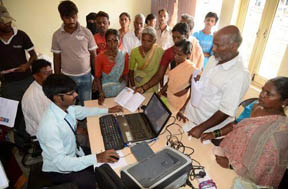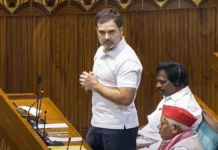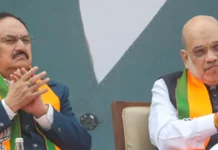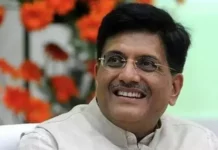 NEW DELHI: Cumulative impact of new reform measures, such as deregulation of diesel prices, coal ordinance and raising FDI limits, taken by the Narendra Modi-led government could be substantial, says the Economic Survey.
NEW DELHI: Cumulative impact of new reform measures, such as deregulation of diesel prices, coal ordinance and raising FDI limits, taken by the Narendra Modi-led government could be substantial, says the Economic Survey.
The survey, tabled in Parliament today, said a huge political mandate and a benign external environment have created a historic moment of opportunity to propel India onto a double-digit growth trajectory.
“… The new government has undertaken a number of new reform measures whose cumulative impact could be substantial,” the Economic Survey for 2014-15 said.
2014-15 said.
The survey listed out several reforms, including replacing cooking gas subsidy by direct transfers across the nation and taxing energy products, besides eliminating quantitative restrictions on gold , taken by the new government.
, taken by the new government.
“Taking advantage of declining oil prices , the excise tax on diesel and coal was increased four times. In addition to resulting in collections of about 70,000 crore (on an annualized basis), this action will have positive environmental consequences,” the Survey said.
, the excise tax on diesel and coal was increased four times. In addition to resulting in collections of about 70,000 crore (on an annualized basis), this action will have positive environmental consequences,” the Survey said.
Talking about the Goods and Services Tax (GST) which the government is hopeful of passing in the ongoing budget session,
it said, “Securing the political agreement on the goods and services tax (GST) that will allow legislative passage of the constitutional amendment bill.”
The Land Acquisition Ordinance would help ease in doing business by making it less onerous, while ensuring that farmers get fair compensation.
On Jan Dhan Yojana it said, “Instituting a major program for financial inclusion- the PM Jan Dhan Yojana under which over 12.5 crore new accounts have been opened till mid-February 2014.”
On gas pricing it said, “Linking pricing, transparently and automatically, to international prices so as to provide incentives for greater gas supply and relieving the power sector bottlenecks.”
It also listed instituting of Expenditure Management Commission (EMC) as an important measure taken by the government. EMC has already submitted its interim report to the government for rationalizing expenditures.
Facilitating Presidential assent for labor reforms in Rajasthan, it said that it sets an example for consolidating and making transparent a number of labor laws.
The Indian economy, the Survey said, appears to have gone past the slowdown, persistent inflation, elevated fiscal deficit, slackening domestic demand, external account imbalances and oscillating value of rupee.
Saying that inflation has been on a downward trajectory between April-December, it projected the consumer price inflation at 5-5.5 per cent for 2015-16.
The declining inflation and a significant improvement in current account deficit (CAD), which is expected to come down to 1 per cent of GDP in 2015-16, have made India an attractive investment destination, it said.
destination, it said.
Private investments must remain the primary engine of long run growth, the Survey emphasized, adding that “public investment , especially in the Railways, will have to play an important role at least in the interim, to revive growth and to deepen fiscal connectivity”.
, especially in the Railways, will have to play an important role at least in the interim, to revive growth and to deepen fiscal connectivity”.
In a separate chapter on 14th Finance Commission, the Survey quoted both first Prime Minister Jawaharlal Nehru and current PM Narendra Modi, to emphasize that adoption of FFC recommendation and creation of NITI Aayog would promote government’s cooperative and competitive Federalism.
Commission, the Survey quoted both first Prime Minister Jawaharlal Nehru and current PM Narendra Modi, to emphasize that adoption of FFC recommendation and creation of NITI Aayog would promote government’s cooperative and competitive Federalism.
Recalling the golden rule of fiscal policy, it said the government should borrow to finance investment
investment and not to fund current expenditure. It urged the government to bring down fiscal deficit to 3 per cent of GDP.
and not to fund current expenditure. It urged the government to bring down fiscal deficit to 3 per cent of GDP.
Referring to subsidies, it said they were estimated to be Rs 3.78 lakh crore or 4.24 per cent of the GDP.
“They (Subsidies) may not be the government’s best weapon for fighting poverty,” it said, adding that often rich households benefit more from subsidies than a poor one.
The Survey said the adoption of JAM number Trinity – Jan Dhan Yojana, Aadhaar and Mobile – would help in delivering subsidies to the poor in a targeted and less distorted manner.
Dwelling on the issue of manufacturing versus services, it said, “Both are equally important in the Indian context…
Similarly ‘Skilling India’ is no less important and deserves an equal importance as the other important goal of Make In India”.
It, however, expressed satisfaction that the number of stalled projects have plateaued and called for revitalizing public private partnership model of investment to boost investment.-PTI
to boost investment.-PTI





